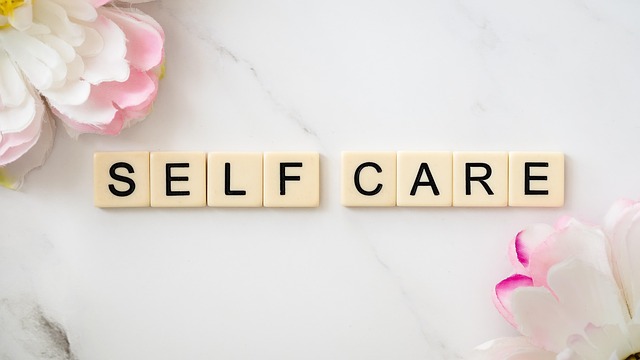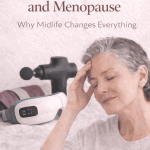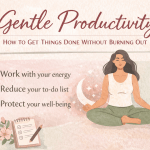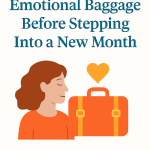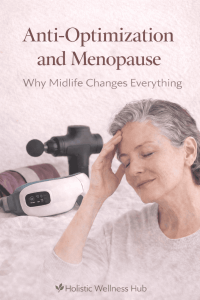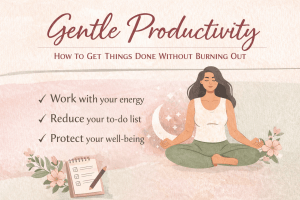In today’s fast-paced, hyper-connected world, the concept of self-care often gets reduced to surface-level indulgences—bubble baths, scented candles, and spa days. While these can be soothing, true self-care runs much deeper. It’s a deliberate, holistic practice that nurtures your mental, emotional, and physical wellbeing. And as Carol’s story from the Mental Health Foundation reminds us, there should be no shame in how we feel.
Carol, a retired woman in her sixties, lost her husband just before the COVID-19 lockdown. She moved to a new area, faced isolation, and struggled with grief and loneliness. Her journey—marked by anxiety, hopelessness, and eventually healing through small acts like walking, journaling, and joining support groups—underscores the transformative power of self-care. Her story is not just personal; it’s universal. It’s a call to prioritize mental wellbeing, especially when life feels overwhelming.
What Is Self-Care?
Self-care is defined by the World Health Organization as “the ability of individuals, families, and communities to promote health, prevent disease, and cope with illness and disability with or without the support of a healthcare provider.” It’s not a luxury—it’s a necessity.
At its core, self-care for mental wellbeing involves:
- Recognizing your emotional needs
- Setting boundaries
- Engaging in restorative activities
- Seeking support when needed
It’s about being a friend to yourself, as Carol beautifully puts it. Whether it’s a walk in the park, a mindful breath, or reaching out for help, self-care is how we reclaim our peace.

The Science Behind Self-Care and Mental Health
Research consistently supports the link between self-care and improved mental health outcomes. A 2023 review in the Online Scientific Research Journal found that mindfulness, physical activity, nature exposure, and social connection significantly reduce symptoms of anxiety, depression, and stress.
Another study published in BMC Psychology revealed that individuals who practiced regular self-care reported:
- Higher levels of life satisfaction
- Lower levels of psychological distress
- Greater emotional resilience
Mindfulness-based interventions, such as meditation and breathwork, have been shown to reduce cortisol levels—the body’s primary stress hormone—and activate the parasympathetic nervous system, which promotes relaxation and healing.
Why Mental Wellbeing Deserves Daily Attention
Mental wellbeing isn’t just about avoiding illness—it’s about thriving. It affects how we think, feel, and act. It shapes our relationships, our work, and our ability to enjoy life.
Neglecting mental health can lead to:
- Chronic stress and burnout
- Sleep disturbances
- Impaired decision-making
- Increased risk of anxiety and depression
Conversely, prioritizing self-care leads to:
- Improved mood and emotional regulation
- Better sleep and energy levels
- Enhanced focus and productivity
- Stronger relationships and social support
Carol’s experience illustrates this vividly. She found solace in nature, companionship in a dog, and healing in community. These small but powerful acts of self-care helped her navigate grief and rediscover purpose.
Evidence-Based Self-Care Practices
Let’s move beyond clichés. Here are research-backed self-care strategies that support mental wellbeing:
1. Mindfulness & Meditation
Practicing mindfulness for just 10 minutes a day can reduce anxiety and improve emotional regulation. Studies show it enhances brain function in areas related to attention and empathy.
2. Physical Activity
Exercise releases endorphins—natural mood boosters. Even moderate activity like walking or yoga can alleviate symptoms of depression and improve sleep quality.
3. Nature Exposure
Spending time in green spaces lowers cortisol levels and boosts mood. A study in Environmental Science & Technology found that just five minutes of outdoor activity improves self-esteem and reduces stress.
4. Journaling
Writing down thoughts helps process emotions and gain clarity. Expressive writing has been linked to reduced symptoms of PTSD and improved immune function.
5. Digital Boundaries
Constant notifications can fragment attention and increase stress. Setting screen-free hours or using “Do Not Disturb” modes can help restore focus and calm.
6. Sleep Hygiene
Quality sleep is foundational. Aim for 7–9 hours, reduce blue light exposure before bed, and create a calming bedtime routine.
7. Social Connection
Meaningful relationships are a buffer against stress. Joining support groups, like Carol’s bereavement circle, fosters empathy and belonging.
Common Barriers to Self-Care—and How to Overcome Them
Let’s be honest—self-care isn’t always easy. Here are some common roadblocks and how to navigate them:
- “I don’t have time.” Start small. Even 5 minutes of deep breathing or stretching counts. Consistency matters more than duration.
- “It feels selfish.” Remember: you can’t pour from an empty cup. Taking care of yourself allows you to show up better for others.
- “I don’t know where to start.” Begin with one practice that resonates with you. Track how it makes you feel over a week. Build from there.
Carol’s story reminds us that even simple acts—like walking on the beach or chatting with a neighbor—can be life-changing. The key is to start.
Creating Your Personalized Self-Care Plan
Self-care isn’t one-size-fits-all. Here’s how to build a plan that works for you:
- Assess Your Needs: Are you feeling physically drained? Emotionally overwhelmed? Spiritually disconnected?
- Choose 2–3 Practices. Pick one for your body, one for your mind, and one for your soul.
- Schedule It. Add it to your calendar like any other important appointment.
- Reflect Weekly: What’s working? What needs adjusting? Self-care is a living practice.
A Cultural Shift: From Stigma to Strength
Mental health has long been stigmatized, especially in cultures where emotional vulnerability is seen as weakness. But that’s changing. Stories like Carol’s—and growing public discourse—are helping normalize conversations around mental wellbeing.
A 2022 survey by the Mental Health Foundation found that 74% of UK adults felt overwhelmed or unable to cope at some point in the past year. Yet only a fraction sought help. The gap between need and action is often fueled by shame, fear, or misinformation.
Carol’s courage to share her experience is a powerful reminder: there is no shame in how we feel. Vulnerability is not a flaw—it’s a bridge to healing.
Ready to prioritize your mental wellbeing—one mindful moment at a time? This beautifully designed self-care checklist from Holistic Wellness Hub is your daily companion for emotional balance, clarity, and calm. Whether you’re navigating stress, seeking more joy, or simply craving a reset, this guide offers gentle structure and science-backed practices to support your journey.
✨ Download now and start showing up for yourself—because your wellbeing deserves your attention.
Final Thoughts
If you take away one thing from this post, let it be this: You are worthy of care—not just when you’re burned out, but every single day.
Self-care for mental wellbeing isn’t a trend. It’s a return to self. A radical act of self-respect. And a quiet revolution that begins with you.
So light that candle. Take that walk. Say that “no.” And remember—you’re not alone on this journey.

